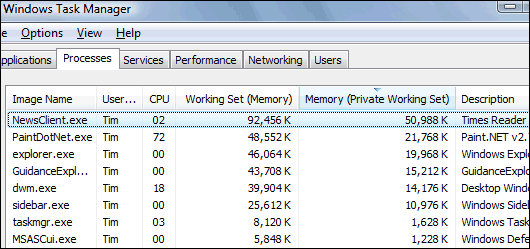Delphi user and Kylix enthusiast Simon Kissel (Kissel is the author of CrossKylix) has written a sharp critique of Borland’s developer tool strategy.
He says few are buying Borland’s .NET tools. They buy Delphi for its native code compiler, and need new features like Unicode and Win64 support. Borland (or DevCo) by contrast is focusing on .NET, but is failing because it cannot keep pace with Microsoft.
I am about 75% in agreement with Kissel. In addition, the splitting of DevCo from Borland, presuming it eventually completes, changes the dynamics in favour of native code. If you put ALM (Application Lifecycle Management) at the centre of your strategy, that pushes you towards .NET, which is great for Enterprise development. If you split off the pure development tools from the ALM side, that gives more voice to the non-Enterprise developers, where .NET has less appeal.
However, a key issue not covered by Kissel is that Win32 development is in decline. That decline will accelerate once Vista and .NET Framework 3.0 become widely deployed (admittedly that will take a couple of years at least). Another factor is the continuing growth in web applications and rich internet (or “smart client”) applications, for which Win32 is ill-suited. It would be tough for Borland to bet its future on a declining market.
Further, Kissel makes too much of how “The other big market player in native RAD Land, Microsoft, has just left the fields.” That’s true only up to a point. Microsoft has abandoned native code VB, but then again VB was never close to Delphi as a native RAD development tool; it did eventually get a native code compiler but always had big runtime dependencies and difficulty in making full use of the Windows API. In addition, Microsoft still has Visual FoxPro (more RAD than native) and Visual C++ (more native than RAD), so it hasn’t altogether abandoned the field.
What’s clear though is that Borland can’t continue with a .NET strategy based on supporting .NET features a year later than Microsoft. And it has to make more of its native code tools – though it actually took a big step in that direction with Delphi 2006, which is excellent for Win32 work.
I feel a little bad here. I said some years ago that Borland should embrace .NET. Still, I did also say this:
However, and it is a big hesitation, to prosper with .Net Borland needs to do more than simply build a Delphi for .Net at its own rather leisurely pace. To succeed the company needs to capture and pursue a vision of what .Net can do; RAD for the Enterprise, .Net beyond Windows; or whatever.
At the time I was hoping Borland would get 100% behind Mono and come up with elegant cross-platform .NET tools. That has never happened; though perhaps it still could.
